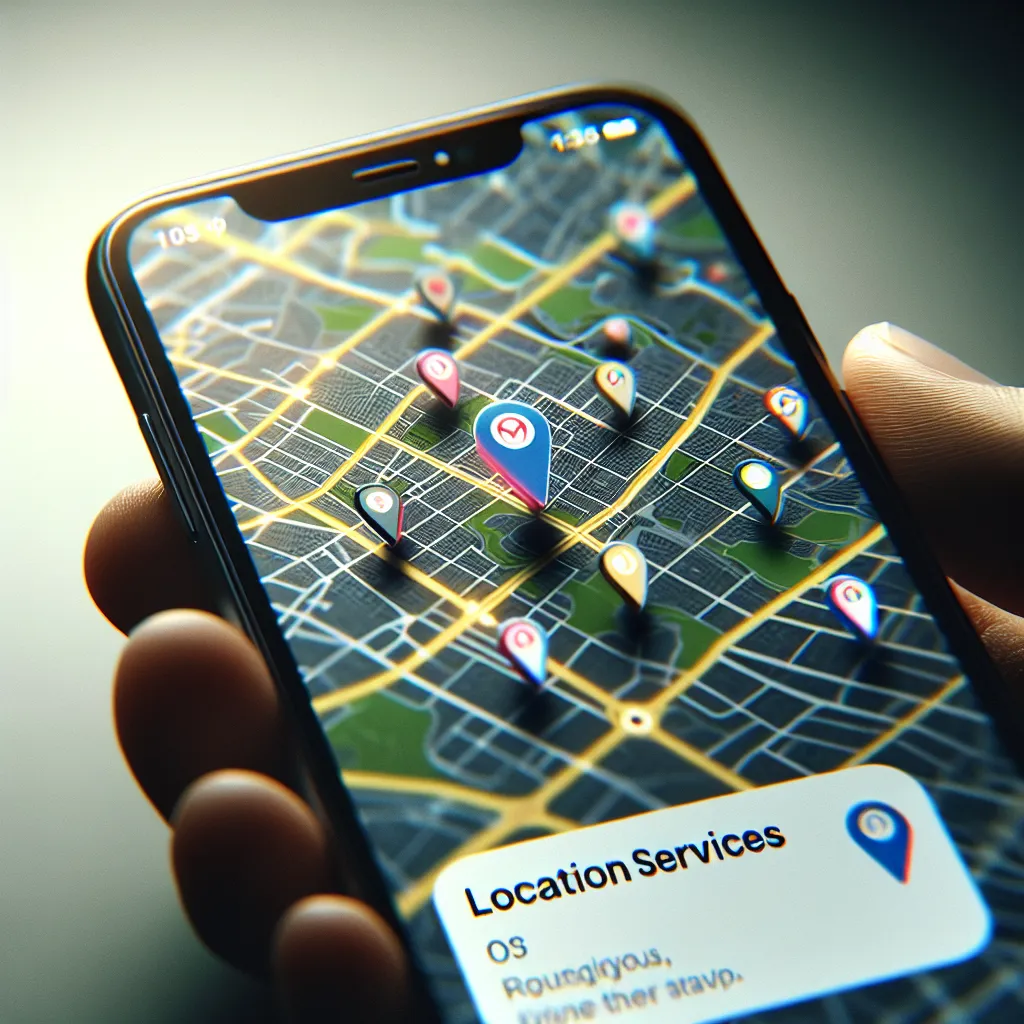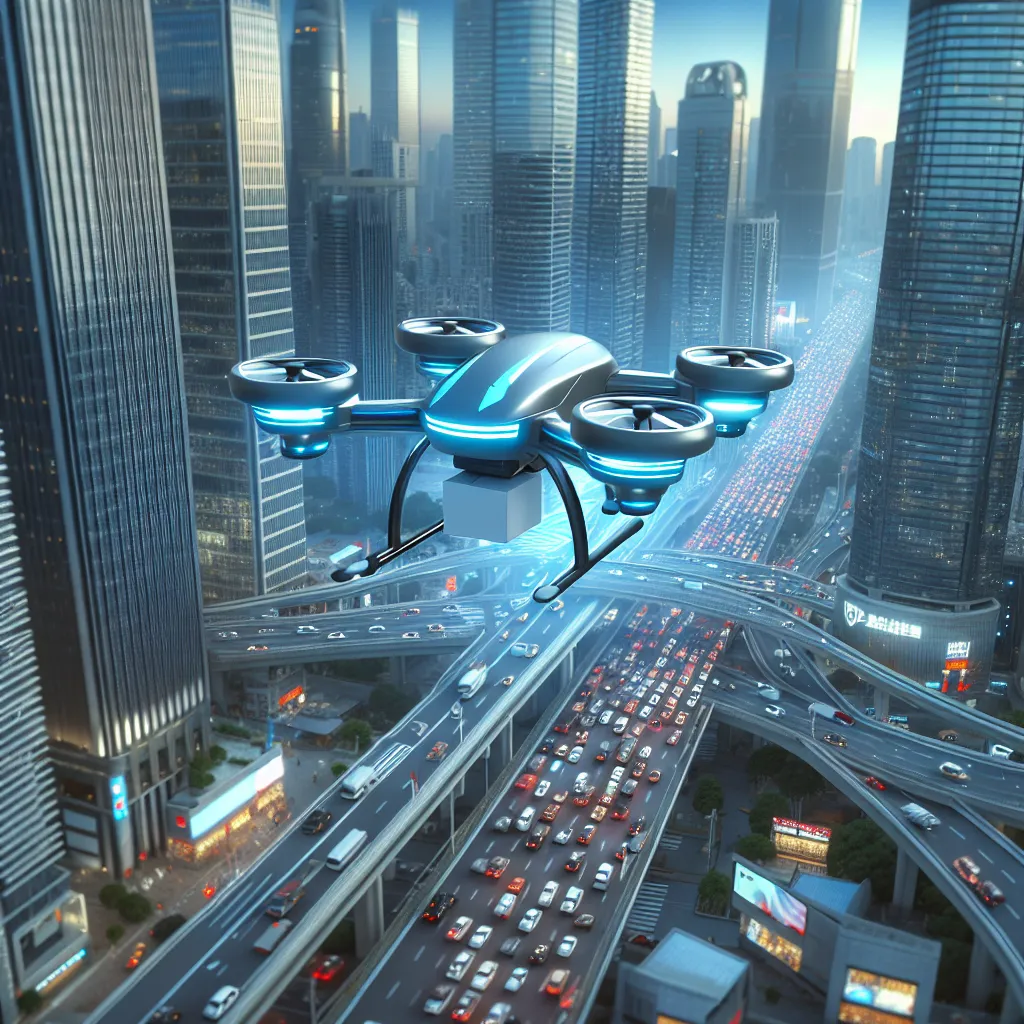The article “Implementing AI Technology for Enhanced Courier Route Optimization” discusses the revolutionary impact of AI technology on the logistics industry, particularly in improving courier route optimization. It highlights how artificial intelligence enables courier companies to analyze data to optimize delivery routes, minimize delivery times, and reduce operational costs, ultimately enhancing the customer experience. Furthermore, the article emphasizes the real-time route adjustments facilitated by AI, leading to greater efficiency and customer satisfaction. Ultimately, the implementation of AI technology for courier route optimization is presented as essential for companies to stay competitive and provide superior delivery services. The article sets the stage for a comprehensive exploration of the benefits and implications of AI-driven route optimization in the courier industry.
Category: Courier Deliveries
Courier deliveries are a convenient and efficient way to send and receive packages and documents. This category encompasses a wide range of courier services, including same-day delivery, international shipping, and specialized handling for fragile or perishable items. Whether it’s a small parcel or a large shipment, courier deliveries offer tracking options and quick turnaround times, making them an essential service for businesses and individuals.
In the realm of e-commerce and global trade, courier deliveries play a crucial role in facilitating transactions and ensuring timely fulfillment. Companies within this category often prioritize reliability, security, and flexibility, tailoring their services to meet the diverse needs of clients. With the ongoing expansion of online shopping and cross-border trade, the courier deliveries category continues to evolve, integrating advanced technologies and sustainable practices to meet the demands of a dynamic market.

Streamlining Last-Mile Courier Deliveries
The article “Improving Last-Mile Delivery Efficiency: Strategies and Technologies” provides insights into the strategies and technologies essential for enhancing last-mile courier deliveries. It emphasizes the significance of optimizing delivery routes, utilizing real-time tracking and visibility solutions, integrating automated delivery systems, and leveraging data analytics. The article highlights the benefits of these approaches, including reduced fuel consumption, improved customer communication, expedited deliveries through automation, and informed decision-making based on historical delivery data. Moreover, it emphasizes the importance of embracing these innovations to meet the increasing demands of e-commerce and gain a competitive edge in the market. With the rise of online shopping, optimizing urban courier services for last-mile deliveries has become crucial in improving the overall customer experience. The integration of route optimization software, real-time tracking, and data analytics can lead to reduced delivery times, cost savings, enhanced transparency, and improved customer satisfaction. These advancements present both challenges and opportunities for courier companies, highlighting the need to focus on optimizing last-mile delivery operations in urban areas to stay competitive and meet the growing demand for efficient delivery services.

Effective Solutions for Managing Remote Teams
The article discusses the crucial factors of building trust and fostering communication within remote teams. It emphasizes the necessity of establishing clear expectations and goals, encouraging transparent and honest communication, and utilizing digital communication tools. The author underlines the significance of regular check-ins, one-on-one meetings, and a culture of empathy to enhance trust and cohesiveness in remote teams. Furthermore, the piece highlights the importance of suitable tools and technologies, such as project management platforms, video conferencing tools, collaboration and file-sharing tools, and communication tools, in ensuring seamless communication and efficient workflow for remote teams. This comprehensive content presents valuable insights for both team leaders and members on effectively navigating the challenges of remote work, making it a must-read for anyone involved in or managing remote teams.

Effective Solutions for Small Business Cash Flow Problems
The article “5 Strategies to Improve Small Business Cash Flow” discusses common cash flow issues faced by small businesses and provides practical solutions to enhance cash flow management. It highlights strategies such as invoice financing, tightening credit policies, expense management, efficient inventory control, and establishing a line of credit. These strategies offer small business owners actionable steps to address cash flow challenges and lay a more stable financial foundation for sustained growth and success. The companion section, “Common Cash Flow Challenges for Small Businesses and How to Overcome Them,” further explores issues such as late payments, irregular sales patterns, and high overhead costs, offering insightful methods to overcome these obstacles and ensure a more consistent cash flow. Readers will benefit from this comprehensive guide, equipping them with the knowledge needed to navigate and optimize their small business cash flow effectively.

Efficient Strategies for Managing Courier Deliveries
The article “Streamlining Courier Routes for Faster Deliveries” emphasizes the importance of optimizing courier routes to ensure efficient and timely delivery. It discusses the use of route optimization software and real-time tracking technology to minimize travel time and adapt to unexpected factors. In addition, effective communication and coordination among drivers and dispatchers are highlighted as essential for streamlining courier routes. Furthermore, the article underscores that these strategies not only benefit the company’s bottom line but also contribute to a more sustainable and environmentally friendly delivery process. The paragraph on “Optimization Techniques for Efficient Courier Delivery Management” provides further insights into the use of route optimization algorithms, real-time tracking systems, and machine learning to enhance operational efficiency and reduce environmental impact. Moreover, the section “Maximizing Resources for Effective Courier Dispatch Operations” discusses the significance of using advanced routing and scheduling software as well as efficient workforce management to optimize courier dispatch operations. Overall, the article presents practical and data-driven strategies for improving courier delivery management, catering to businesses aiming to enhance their delivery operations and customer satisfaction.

The Future of Autonomous Delivery Vehicles
The rise of autonomous delivery vehicles represents a major shift in the last-mile delivery process, offering unprecedented efficiency, cost-effectiveness, and environmental impact. Leveraging advanced technologies like artificial intelligence and machine learning, these vehicles can navigate urban environments, reduce reliance on human drivers, and operate round-the-clock for enhanced convenience. Furthermore, they have the potential to significantly slash operational costs with efficient route planning and optimized fuel consumption, while also reducing carbon emissions. Despite challenges such as safety and regulatory considerations, the immense opportunities presented by autonomous delivery vehicles for streamlining logistics and promoting sustainability make them a compelling prospect for the future of urban delivery. If you’re interested in the transformative potential of autonomous vehicles in revolutionizing last-mile delivery, this comprehensive article delves into their capabilities, challenges, and the future landscape they are set to shape.

The Impact of Technology on Improving Courier Deliveries
The impact of technology on revolutionizing courier deliveries is evident in the significant improvements in efficiency, speed, and customer experience achieved through the integration of advanced routing software, GPS tracking, and real-time updates. Additionally, the introduction of delivery drones, autonomous vehicles, and the use of artificial intelligence and machine learning algorithms has the potential to further transform the courier delivery landscape, promising expedited deliveries, reduced costs, and sustainability. Furthermore, the implementation of advanced tracking systems, automated route planning, and seamless communication tools has undeniably enhanced efficiency and productivity in courier services, leading to improved customer satisfaction and a more sustainable and eco-friendly delivery process. As technology continues to evolve, further optimization and enhancements in the courier delivery process are expected, ultimately benefiting both the industry and its customers. If you want to learn more about how technology is redefining courier services and its influence on enhancing efficiency, this comprehensive article provides detailed insights and examples of the transformative role of technology in the courier delivery sector.

Cutting-Edge Solutions for Cybersecurity Threats
The article extensively covers the role of emerging technologies in advancing cybersecurity defense, discussing the impact of AI, machine learning, blockchain, and quantum cryptography. It highlights how AI and machine learning enable real-time threat detection, while blockchain provides a decentralized and immutable approach to data security. Similarly, quantum cryptography offers unbreakable encryption methods. Furthermore, the article emphasizes innovative approaches such as predictive analytics, DevSecOps practices, and next-generation strategies, portraying them as essential in the proactive, adaptive, and resilient defense against the evolving threat landscape. The comprehensive analysis and insights presented throughout the article make it a compelling read for anyone interested in understanding the cutting-edge technologies reshaping cybersecurity defense.

The Impact of Mile Delivery on Urban Traffic
The article “Reducing Congestion: The Influence of Mile Delivery on Urban Traffic” addresses the significant impact of mile delivery services on urban traffic and the potential strategies to mitigate congestion. It highlights how efficient route planning and the use of eco-friendly vehicles by delivery companies can play a crucial role in reducing traffic congestion and minimizing environmental impact. Additionally, the article “Eco-Friendly Solutions: Examining the Environmental Impact of Mile Delivery in Cities” underscores the growing concern regarding the environmental impact of mile delivery and emphasizes the adoption of eco-friendly solutions, such as electric delivery vehicles and optimized delivery routes, to address the escalating traffic congestion and air pollution in urban areas. Moreover, both articles underscore the importance of embracing sustainable practices to create less congested and environmentally friendly urban environments, making them essential reads for those interested in understanding and addressing the challenges posed by mile delivery services.

The Evolution of Tracking Technology in the Digital Age
The article provides a comprehensive overview of the history and evolution of tracking technology, from ancient methods to modern solutions, highlighting its significance in various aspects of human life. It delves into the early forms of tracking, such as physical markers and navigation techniques, and then progresses to the revolutionary advancements in digital tracking, including GPS and RFID technologies. The integration of tracking technology in industries like transportation, logistics, and e-commerce is emphasized, showcasing its profound impact on modern society. Furthermore, the article raises pertinent issues concerning privacy and ethical considerations in tracking technology, compelling the reader to explore the full scope of the article to gain a deeper understanding of this complex and evolving field.

